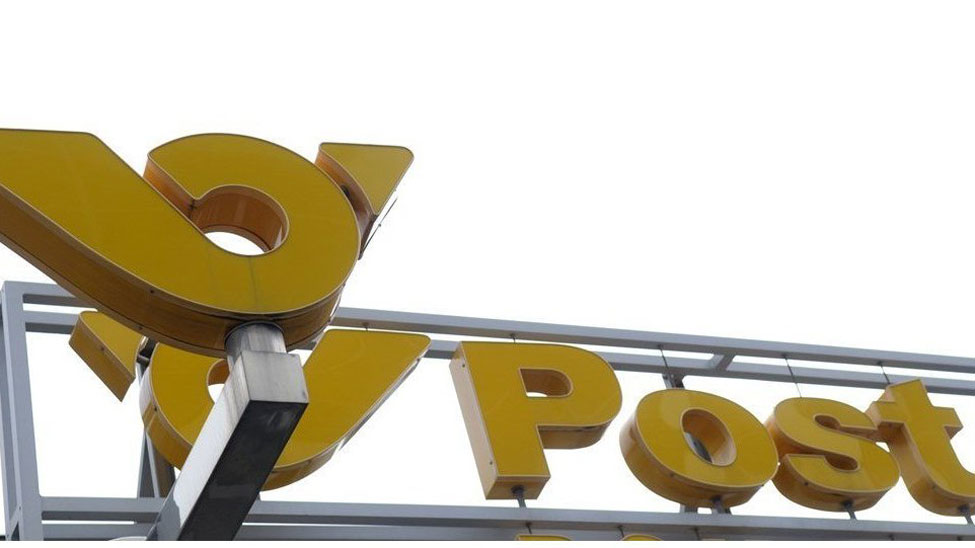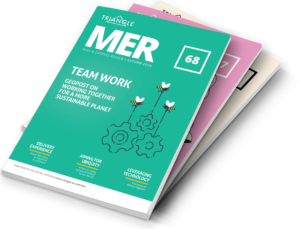
Austrian Post will continue to invest both in growth and in the decarbonisation of logistics in 2022

Parcel volume growth, Letter and Direct Mail decline
- Parcel volumes in Austria +11 %, Turkey +5 %, CEE/SEE +16 % in 2021
- Letter mail volumes -4 %, direct mail items –1 % in 2021
2021 revenue increase of 14.9 % to EUR 2,519.6m (+5.7 % organic)
- Mail +0.1 % to EUR 1,224.2m
- Parcel & Logistics +36.4 % to EUR 1,245.7m (+14.2 % organic)
- Retail & Bank +10.8 % to EUR 74.7m
Earnings
- EBITDA +22.3 % to EUR 370.4m
- EBIT +27.5 % to EUR 204.7m
- Mail: -5.6 % to EUR 155.2m
- Parcel & Logistics: +60.6 % to EUR 118.1m
- Retail & Bank: +10.4 % to minus EUR 39.2m
- Earnings per share +28.7 % to EUR 2.25
Cash flow and balance sheet
- Operating free cash flow of EUR 217.9m
- Balance sheet total now at EUR 4.8bn (+78.8 %) due to bank99
Outlook for 2022
- Difficult outlook in a challenging market environment (acts of war in the Ukraine fuels inflation and subdued consumer behaviour in many markets)
- Start 2022: First half-year with economic headwinds
- Aiming for as stable as possible in revenue and earnings as close as possible to 2021 level
“The year 2021 was very successful for Austrian Post. The business environment in the national and international mail and parcel business consistently improved following a difficult pandemic-driven 2020. “We managed to ensure the safety of our staff and safeguard our logistics performance as well as increased the profitability of our company”, says CEO Georg Pölzl.
Group revenue rose by 14.9 % in 2021, of which 5.7 % is attributable to organic growth and the remainder to the full consolidation of the Turkish subsidiary Aras Kargo. Following strong pandemic-driven momentum in the parcel business during the first three quarters there was a consolidation in the fourth quarter. Fourth quarter 2021 parcel revenue was up by 0.9 % from the previous period. The basic trends impacting current business activities were also visible in 2021 i.e., declining letter mail and direct mail volumes accompanied by a simultaneous increase in parcel volumes also triggered by lockdown-related closures of retail stores.
The Group’s divisional revenue distribution has changed significantly in 2021: The Parcel & Logistics Division generated the largest share of the Group’s revenue at 49.0 % followed by 48.1 % generated by the Mail Division and 2.9 % by the Retail & Bank Division. Revenue of the Parcel & Logistics Division climbed by 36.4 % to EUR 1,245.7m, implying organic growth of 14.2 %. This development can be mainly attributed to the Turkish subsidiary Aras Karo as well as to strong business in Austria and in Southeast and Eastern Europe. The Mail Division generated revenue of EUR 1,224.2m (+0.1 %) and was impacted by declining letter mail volumes and an ongoing difficult market environment for direct mail and media post due to various lockdown measures imposed on the retail market. Revenue of the Retail & Bank Division improved by 10.8 % to EUR 74.7m in the 2021 financial year. In addition to the positive development of its customer ramp-up efforts, the subsidiary bank99 also acquired the retail business of ING in Austria at the end of 2021, thus enabling it to extend its existing offering by adding its own loan and investment products.
Earnings also reflected the improved revenue situation. EBITDA increased to EUR 370.4m (+22.3 %) and earnings before interest and tax (EBIT) rose by 27.5 % to EUR 204.7m. The Mail Division reported an EBIT decline of 5.6 % to EUR 155.2m. In contrast, EBIT of the Parcel & Logistics Division increased from EUR 73.5m to EUR 118.1m (+60.6 %) and the Retail & Bank Division improved its earnings performance to minus EUR 39.2m compared to minus EUR 43.8m in the previous year. Austrian Post’s profit for the period amounted to EUR 158.4m compared to the prior-year level of EUR 115.3m. Earnings per share in the 2021 financial year equalled EUR 2.25. Based on good results, an attractive dividend of EUR 1.90 per share will once again be proposed to the Annual General Meeting scheduled for 21 April 2022.
From today’s perspective, a challenging environment is anticipated in the 2022 financial year as well as the non-recurrence of positive pandemic-related one-off effects. Delays in the global value chain and rising inflation already took place in 2021 alongside pressure on the Turkish lira. The current political events pose major challenges to the European population and companies. “We are deeply saddened by the war taking place in Ukraine. Human suffering dwarfs all the other effects,” says Austrian Post CEO Georg Pölzl.
The direct impacts on the business model of Austrian Post in terms of mail and parcel flows from the countries involved are relatively minor. However, indirect effects are, in fact, expected. Inflation based on price increases for energy and raw materials will intensify and could thus have adverse effects on consumer behaviour in the future. Furthermore, negative effects are also expected with respect to the Austrian Post subsidiary bank99 as a result of payments to be made within the context of bank deposit insurance in Austria. Due to market headwinds it is not expected that earnings in the first half of 2021, which were supported by positive special effects, will be achieved over the same period in 2022. In spite of this looming negative market environment, Austrian Post aims to keep revenues as stable as possible and operating earnings (EBIT) once again close to the prior-year level.
Continuity with regards to the expansion programme for logistics capacities is also a priority. Austrian Post will continue to invest both in growth and in the decarbonisation of logistics in 2022. The target is to strengthen Austrian Post’s top position with respect to quality and speed as well as to safeguard its pioneering role in the decarbonisation of logistics.
“Our more than 27,000 employees are the foundation for our success. They work for the benefit of our customers with high commitments on a daily basis. Many thanks to them for this. Together we will succeed in continuing to be the preferred partner of our customers”, CEO Georg Pölzl concludes.












